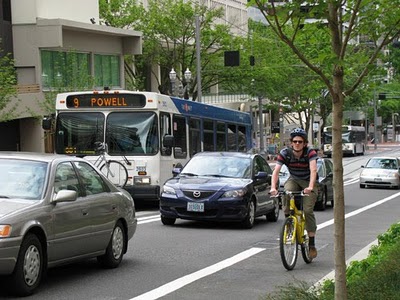Nearly 500 cities, states, and counties around the United States have enacted complete streets policies, according to Smart Growth America. Now a bipartisan team of lawmakers has introduced legislation to make it a matter of national policy that streets should be designed not only for driving, but for walking, biking, and transit as well.

Reps. Doris Matsui (D-CA) and David Joyce (R-OH) yesterday introduced the Safe Streets Act of 2013 [PDF], which would require states and regional planning agencies to develop complete streets policies for federally funded projects within two years.
“Too many of the roads in our country are designed solely with drivers in mind," said Rep. Matsui in a press release. "The risks of such design are evident in the number of pedestrian and bicyclist deaths and injuries we see every year, and often discourage more people from considering other transportation methods.”
Co-sponsorship by Rep. Joyce, who replaced the famously bike- and transit-friendly Republican Congressman Steve LaTourette following his retirement early this year, seems like a promising sign that the new congressman will continue his predecessor's legacy as a key GOP supporter of multi-modal transportation policy.
“I’m pleased to be part of the bipartisan effort to make our roadways safer, particularly for seniors and children," Joyce said in a press release. "It’s important we take steps to improve safety in our communities and this bill is a step in the right direction."
Smart Growth America applauded the introduction, saying it is "another sign that Congress is responding to the demands of the American public for travel options that are safe and convenient for all users of our transportation system.”
The bill was introduced with the support of a variety of advocacy groups, including the League of American Bicyclists, AARP, Transportation for America, Safe Routes to School, and the American Planning Association.
The law would exempt the type of roadways where pedestrians and cyclists are not allowed, such as freeways. It would also provide an exemption if compliance is "cost prohibitive" or if a project is in a rural area where "there is a clear lack of need for complete streets."





